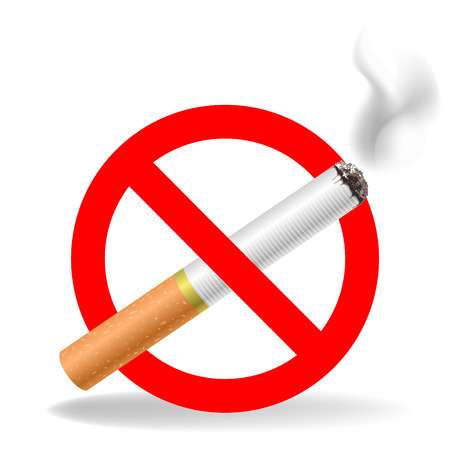
By Edu Abade
Tobacco control and public health advocates have urged policy makers and stakeholders in the public health space to adopt measures aimed at obtaining credible data on the accurate figures of diseases and deaths caused by smoking and the use of other tobacco products in Nigeria and across the world.
They argued that data being gathered and released by the World Health Organisation (WHO) and other health agencies on the dangers of tobacco use fall short of the reality globally and especially in Nigeria (with a population of over 200 million) where smokers and users of tobacco products have been estimated at 3.4 million.
This was the submission of advocates at a virtual workshop titled: Tobacco and Data Journalism Training organized by the Renevlyn Development Initiative (RDI) in Lagos where participants agreed that the tobacco industry was causing more harm to public health than had been projected over the years.
In his opening speech, Executive Director of RDI, Philip Jakpor, said reports on tobacco-induced diseases and deaths, as well as control efforts in the media have been limited to statistics from the WHO and insufficient national data, insisting that there are other issues from which data could be obtained, but such issues have either been unreported or underreported.
“We must not forget that policy makers rely on what they read or hear or watch to make laws that are rooted in facts. The task of ensuring that the right information gets to them is shouldered by the media. This is why we have partnered with experts in the public health sector to show us areas of tobacco control where credible data can be found. We also need trusted platforms where we can obtain data from and reference to enrich our reports,” he said.
To underscore the importance of credible data in reporting tobacco issues, he explained that the Centre for Disease Control and Prevention recently revealed that in the United States (U.S.) alone the tobacco industry’s spending on visibility activities including cigarettes advertising and promotion increased from $7.84b in 2020 to $8.06b in 2021.
He lamented that in spite of the health hazards associated with smoking and use of other tobacco products, the industry has paid social media influencers to covertly promote their harmful products through subtle campaigns, adding that in Nigeria, they deploy all kinds of promotional activities that run into millions of naira and exploit the social media to circumvent regulations on tobacco marketing and industry interference with health policies.
In her presentation titled: Using Data to Make Tobacco Stories Relevant, a media strategist, Vanessa Adie Offiong, who maintained that data adds credibility and strength to stories, stressed that humanizing data makes stories stronger and more relatable.
Citing data from the WHO, she said tobacco kills half of its users who don’t quit, kills over 8 million people worldwide yearly, including an estimated 1.3 million non-smokers who are exposed to second-hand smoke.
“About 80 percent of the world’s 1.3 billion tobacco users live in low-and middle-income countries. In 2020, 22.3 percent of the world’s population used tobacco, comprising 36.7 percent of men and 7.8 percent of women,” she said.
Wondering who the men and women might be and the ripple effects on them and their families, she noted that to address the tobacco epidemic, WHO member countries adopted the WHO Framework Convention on Tobacco Control (WHO-FCTC) in 2003, adding that 182 countries are currently parties to the treaty.
Executive Director, Vision for Alternative Development (VALD) Ghana, Lebram Musah, whose presentation focused on SDGs as a Vital Data Source for Tobacco Control, pointed out that while nothing will happen automatically, there are 17 goals and 169 commitments in the Sustainable Development Goals (SDGs) and governments will have to choose the ones they will focus on.
Specifically, he stressed that reports on tobacco control should ensure healthy lives and promote the well-being of people of all age groups.
He added that section 3.4 targets 2030 to reduce premature mortality from Non-Communicable Diseases (NCDs) by one third through prevention and treatment and promote mental health and well-being, while section 3.a focuses on strengthening the implementation of the WHO-FCTC in all countries as appropriate.
On his part, a Research Analyst with the International Food Policy Research Institute (IFPRI), Austine Iraoya, who spoke on Reporting Tobacco Taxation, charged journalists to focus on trends in tobacco consumption, analyze tax-related data to track the trends over time and highlight fluctuations in smoking rates coinciding with changes in taxation policies.
He said such reports must showcase the effectiveness of tax policies in influencing public behavior and contributing to public health goals.
Other areas of focus are, economic impact and revenue allocation; enforcement and tax evasion; international comparisons; innovation in taxation policies; consumer behavior and quitting patterns; impact on public health goals; corporate practices and lobbying influence, as well as environmental consequences of tobacco cultivation, production and consumption.
Also, Seember Ali of Development Gateway (DG), whose presentation examined Tobacco Control Data Initiative (TCDI), maintained that the world had entertained the tobacco industry and the evil its lethal products represent for far too long.
She stressed the need for a home-grown database on the hazards caused by the industry and the need for Africa and Africans to tell their own story, insisting that Nigeria and other African countries have relied too heavily on data from foreign sources in tackling tobacco-related diseases and deaths, as well as control issues.











